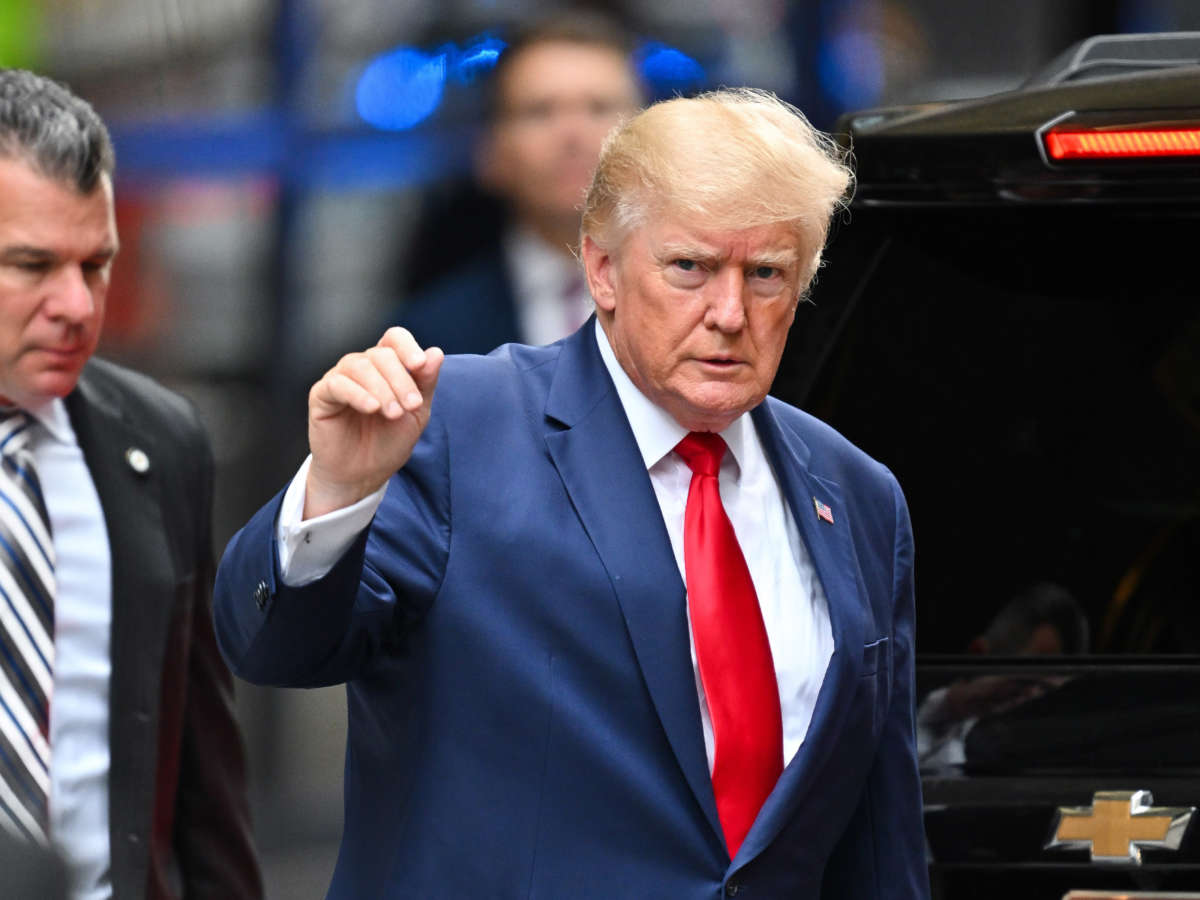Lawyers representing former President Donald Trump’s eponymous company at a trial in New York on Monday seemingly attempted to mislead jurors during opening statements, prompting the judge presiding over the case to call for a recess.
The Manhattan district attorney’s office has accused the Trump Organization of engaging in tax evasion — providing employees, for example, with fringe benefits and perks (such as buying them cars or paying for their children’s tuition fees) rather than increasing their salaries in order for the company to owe less in taxes.
According to tweets from Vice journalist Greg Walters, who covered the proceedings live, lawyers for the Trump Organization were misleading jurors on what the company had been charged with, leading prosecutors to make several objections during the first phase of the trial. At one point, Judge Juan Merchan, noticing some jurors’ fatigue over the starting-and-stopping of the opening statements from Trump Organization lawyers, called for a 15-minute recess and excused the jury from the room.
The judge “caution[ed] the lawyers in the room not to explain the law (after Trump Org lawyers claimed the case was really only about cheating on personal income taxes),” Walters reported in a tweet.
“I will permit you to say that he acted solely for his benefit, and that’s it,” Walters tweeted, quoting Merchan. “It’s a confusing area of the law, and for them to get confused at this point is not going to help anybody.”
The move was unusual, Walters said.
“I have never seen a judge excuse a jury for 15 minutes in the middle of an opening argument. … Like, multiple sustained objections (3x so far) are one thing, but a lengthy break in the middle is just… weird,” Walters tweeted.
“I think it’s fair to say this [is] not an auspicious start for the Trump Org defense,” the journalist added.
The trial on day one also showcased the Trump Organization’s “master plan” for its defense, Walters reported: to blame everything on longtime company chief financial officer Allen Weisselberg, claiming he was the one in charge of giving employees extra benefits in lieu of higher pay. Weisselberg has already pleaded guilty to 15 counts of tax fraud and is expected to testify at the trial sometime later, though he is not considered by prosecutors to be a cooperating witness.
The Trump Organization’s legal argument could work, in theory, but only if the Manhattan district attorney’s office can’t prove that the company was aware that Weisselberg provided those fringe benefits. Notably, Weisselberg reportedly received similar benefits from the company, which is still paying him a $1 million salary.
The trial is set to end in about four weeks. If Trump is found guilty, the Trump Organization would have to pay a fine of around $1 million, and could be restricted from obtaining new loans or engaging in new business deals in the future.


